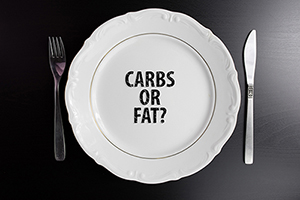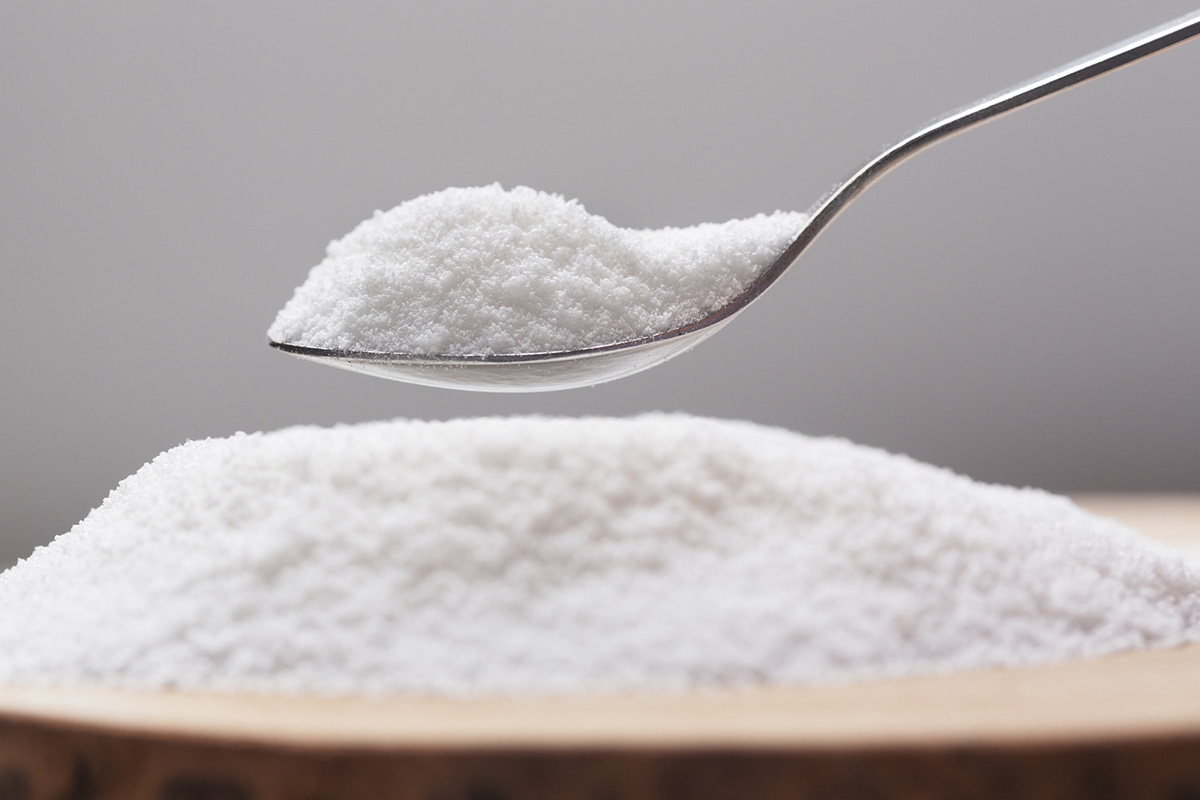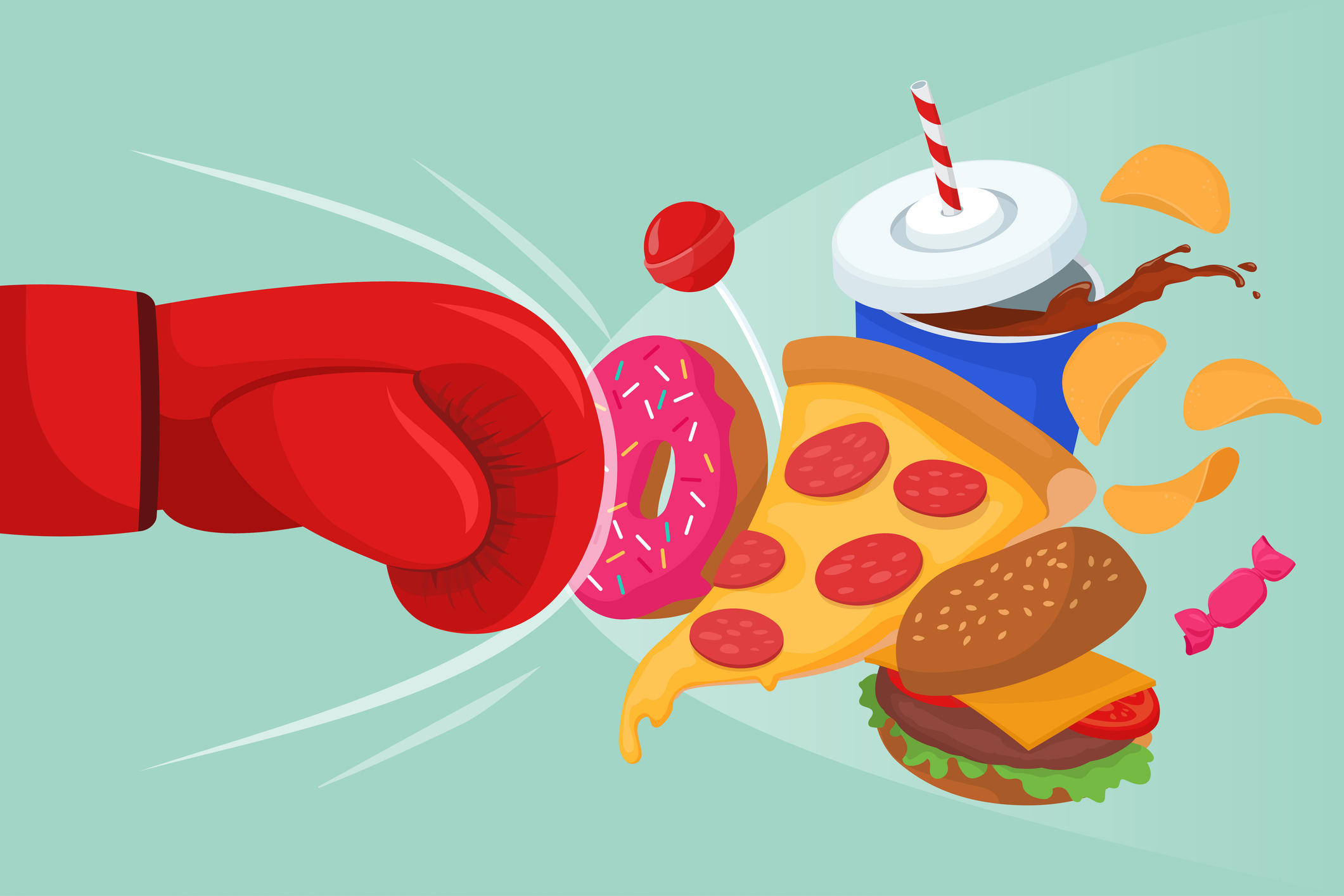“Saturated Fat Increases Risk for Liver Disease More Than Sugar or Unsaturated Fat,” exults the Physicians Committee for Responsible Medicine (a pro-vegan group):
“Saturated fat intake is more harmful to the liver than sugar or unsaturated fat, according to a new study published in Diabetes Care. Researchers fed 1,000 extra calories a day to 30 overweight participants in the form of saturated fat, unsaturated fat, or simple sugars for three weeks and analyzed their metabolic outcomes. Intrahepatic triglyceride, a marker of fatty liver disease, increased by 55 percent in the saturated fat group, compared with 15 and 33 percent for the unsaturated fat and simple sugar groups, respectively. The authors caution that markers for heart disease and type 2 diabetes were highest among those in the saturated fat group as well.”
Hence the study neatly vindicates the viewpoint of advocates of a vegan, low-fat diet: Fats are bad, especially saturated ones—they’re even worse for you than sugar!
It’s all based on a study published in Diabetes Care entitled “Saturated Fat Is More Metabolically Harmful for the Human Liver Than Unsaturated Fat or Simple Sugars.”
It’s another example of “If you ask the wrong question, you’ll get the wrong answer,” a familiar theme lately in nutrition research. Here’s why:
It’s amazing that the study was undertaken in the first place. It involved taking overweight individuals already suffering from metabolic syndrome and at high risk for fatty liver and diabetes, and deliberately over-feeding them—with an additional 1,000 calories per day! Talk about “Supersize Me”!
This study is the nutritional equivalent of the Tuskegee Syphilis Study—an infamous experiment in which African American men were deliberately withheld curative syphilis medication to see what would happen if they remained untreated.
Adding 1,000 extra calories of saturated fat, unsaturated fat, or sugar to the Standard American Diets consumed by these study participants is hardly a test of the relative impact of either of these three macronutrients on liver health or overall metabolism. It’s simply an over-feeding experiment, marginally worthy of approval by an ethical review committee.
The issue should have been settled by a previous 2016 study entitled “Nonalcoholic fatty liver disease is associated with excessive calorie intake rather than a distinctive dietary pattern.”
“Evidence for dietary fat to influence liver triglyceride accumulation is relatively sparse. Given the evidence presented here, it would appear that total calories consumed, rather than dietary composition, is a contributing factor in the development of fatty liver disease.”
It’s a big “duh” that putting the feedbag on with any kind of high-test energy source is bad for your liver.
The diets consumed by participants in the new Diabetes Care study were by no means low-carb: “At the end of the overfeeding period, fat comprised 60% (54–64) and 59% (53–61) of the total energy intake in the SAT [saturated fat] and UNSAT [unsaturated] groups, respectively.”
If you want to do a study of the effects of saturated fats, make sure you throw away the bun when you order your bacon cheeseburger, and don’t order fries and a Coke; similarly, if you’re investigating unsaturated fats, don’t eat copious amounts of avocado toast with a side of potato salad and a pecan pie dessert.
There are even studies suggesting the opposite: That the way to reduce fatty liver (and, by inference, insulin resistance) is to follow a low-carb diet, with moderate amounts of fat and protein.
Nevertheless, after crunching all the data, the authors of the Diabetes Care study make an amazing leap of logic:
“Consistent with current dietary recommendations, the current study shows that saturated fat is the most harmful dietary constituent regarding IHTG [intrahepatic triglyceride] accumulation. Because NAFLD [non-alcoholic fatty liver disease] increases the risk of type 2 diabetes, avoidance of foods rich in saturated fats might also help in prevention of diabetes.” This is an incredibly flawed conclusion!
In other words, on the basis of an artificial over-feeding experiment, excess saturated fat was found to be slightly worse than sugar for producing fatty liver (both were bad, and unsaturated fat was only slightly better). The authors then opine that, since fatty liver is a precursor of diabetes, saturated fat is per se the major food contributor to diabetes risk… ergo you should avoid saturated fat to prevent diabetes! WHAT A REACH!
It wouldn’t pass muster in a court of law: Defendant A was identified by witnesses as pulling the trigger. Defendant B was seen in the vicinity. Both defendants receive a verdict of first-degree homicide.
What’s in it for the authors of the Diabetes Care study? As the official publication of the American Diabetes Association, they’re still in thrall to the outmoded dogma that saturated fats are to be minimized in a diabetes diet.
When they write “Consistent with current dietary recommendations”—whose dietary recommendations? They’re simply doubling down on the much-maligned, anachronistic low-fat mantra of the Dietary Guidelines for America (DGA) and the American Heart Association which continue to call for low-fat dairy and avoidance of red meat. It’s the last gasp of the low-fat acolytes.
The American Diabetes Association Diet Guidelines (2013) still call for a diet “High in fruits, vegetables, low-fat dairy, whole grains, poultry, fish, nuts. Low in saturated fat, red meat, sweets, sugar-containing beverages, sodium.”
In their 2017 article “Navigating a Low-Carb Eating Plan: Some people are giving up bread, potatoes, and pasta in pursuit of better health. Should you?” the ADA damns the low-carb diet with faint praise:
“On the surface, it seems that a diet lower in carbohydrate—the nutrient that has the biggest effect on blood glucose levels—would benefit people with diabetes, who need to manage those levels for optimal health. Cutting carbohydrate, particularly when it comes from sugar and refined grains, can help people with diabetes manage weight and their blood glucose. But the notion of a low-carb diet is poorly defined and commonly misunderstood . . . The American Diabetes Association (ADA) does not advocate for or against a low-carb eating plan, but it does recommend reducing saturated fat. Its 2017 Standards of Medical Care in Diabetes recommends emphasizing in a meal plan unsaturated fats found in plant-based foods, such as oils, nuts, and avocados.”
In fact, it’s the very low-carb (VLC) diet—including saturated fat from meats, full-fat dairy, and tropical oils—that is proving the most effective nutritional strategy vs. diabetes. This has been known since 19th Century undertaker William Banting cured his obesity with a low-carb diet rich in meats.
Bottom line, there’s more ideology than science in this latest study—certainly not the final parting shot of the low-fat dietary establishment as it seeks to push back against mounting inroads by low-carb advocates—and an increasingly skeptical public.
For a more detailed discussion of the impact of diet on fatty liver disease, read my recent article “Rethinking Super Size Me: Is it a Big Whopper?”








